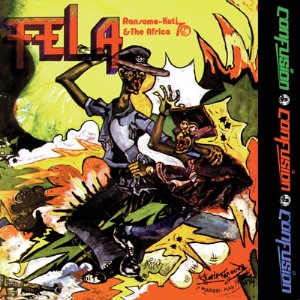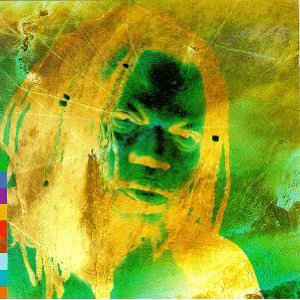The native folk music of Mozambique has been highly influenced by Portuguese colonisation and local language forms. The most popular style of modern dance music is marrabenta. Mozambican music also influenced another Lusophone music in Brazil, like maxixe, and mozambique style in Cuba and New York City.

Soukous is a genre of dance music originating from the Democratic Republic of the Congo and the Republic of the Congo. It derived from Congolese rumba in the 1960s, with faster dance rhythms and bright, intricate guitar improvisation, and gained popularity in the 1980s in France. Although often used by journalists as a synonym for Congolese rumba, both the music and dance associated with soukous differ from more traditional rumba, especially in its higher tempo, song structures and longer dance sequences.

The Gap Band was an American R&B and funk band that rose to fame during the 1970s and 1980s. The band consisted of three brothers: Charlie, Ronnie, and Robert Wilson, along with other members; it was named after streets in the historic Greenwood neighborhood in the brothers' hometown of Tulsa, Oklahoma.
Afro rock is a style of rock music with African influences. Afro rock is a dynamic interplay between Western rock music and African musical elements such as rhythm, melodies and instrumentation. Afro rock bands and artists in the late 1960s and early 1970s included Osibisa, Assagai and Lafayette Afro Rock Band.
Marrabenta is a popular style of Mozambican dance music combining traditional Mozambican dance rhythms with Portuguese folk music. It was developed in Maputo, the capital city of Mozambique, during the 1930s and 1940s.
Ghorwane is a Mozambican marrabenta musical band who have primarily used guitars, saxophones, and percussion instruments. It was founded in 1983. The band derived its name from the lake of the same name in the province of Gaza. This name was given by President Samora Machel during a festival to celebrate the ten years of independence in 1985. Samora has declared that "It's prohibited to lie in the People's Republic of Mozambique" and cites Ghorwane as an example. Ghorwane is the Shangaan term for "Good Boys". Their style is a combination of traditional Mozambique music, Afropop, and fusion. Ghorwane's music is sung in local languages, including Shangaan, Ronga and Chope. The band's composer and saxophonist, Jose "Zeca" Alage, was murdered in 1993. Their 2005 album VANA VA NDOTA was dedicated to Zeca Alage (1959–1993) and Pedro Langa (1959–2001).
Les Quatre Etoiles was a Congolese musical group active from 1982 to 1996. They played the Soukous style of dance music, which gained widespread popularity in the 1980s and 1990s.
Tananas is a South African band formed in 1987. Originally it consisted of Gito Baloi, Ian Herman and Steve Newman. First recorded by the independent label Shifty Records, Tananas combined jazz, Mozambican salsa and township jive. They released eight albums, the last two on the Sony label.

Gravity is a 1980 solo album by English guitarist and composer Fred Frith. It was Frith's second solo album, and his first since Henry Cow disbanded in 1978. It was originally released in the United States on the Residents' Ralph Records, as the first of three solo albums Frith would record for the label. Gravity has been described as an avant-garde "dance" record that draws on rhythm and dance from folk music across the world.

Stompin' at the Savoy – Live is an album by American R&B/funk band Rufus with singer Chaka Khan, released on the Warner Bros. Records label in 1983.
Neyma Julio Alfredo is a Mozambican singer. She is known for producing songs of the Mozambican genre, such as Marrabenta and Kizomba.
Humberto Carlos Benfica, known as Wazimbo, is a Mozambican vocalist considered one of the greatest voices of Mozambique and one of the most famous marrabenta singers. Born in Chibuto, in Gaza Province, Mozambique he moved to the capital — Lourenço Marques — where he grew up in the popular neighborhood Mafalala. There he started as a vocal member for the local group "Silverstars" and then "Geiziers". Later, he joined Orchestra Marrabenta Star de Moçambique.
Stewart Sukuma, born Luis Pereira in 1963, is a Mozambican singer. Sukuma's stage name means "rise up" in Xitsonga and "push" in Swahili. He was born in Cuamba, Niassa Province. Coming from a modest family, Sukuma loved music; he moved to the Mozambican capital of Maputo in 1977, learning to play percussion instruments, guitar and piano. Five years later, Sukuma joined a musical group as a vocalist. He received a Ngoma Mozambique award in 1983, and has been described as "Mozambique's most popular male vocalist". Sukuma's songs include "Felizminha", "Xitchuketa Marrabenta", "Sumanga", "Male" and "Why". He sings in Portuguese, English, Swahili, Echwabo and Xitsonga.
The Craig Charles Funk and Soul Show is a British radio programme, broadcast on BBC Radio 6 Music on Saturdays, between 6 pm and 9 pm, and from 2016 until 2022 between 10 pm and 12 midnight on BBC Radio 2. The Radio 6 Music show is presented live by Craig Charles and produced by Simon Hodge, Ben Appleyard and Ellen Orchard for TBI Media. All varieties of funk and soul music are played, from classic tracks to contemporary releases. It is the longest-running show on BBC Radio 6 Music.
Fany Pfumo was a Mozambican-born singer who was mainly active in South Africa. He is considered one of the founders and of the prominent artists in the marrabenta style scene. Born to a poor family, he started his career playing an "oil tin guitar" in Maputo's suburbs but later moved to South Africa in search of a better living. In Johannesburg, Pfumo had the opportunity to record with HMV, achieving international fame with songs such as Loko ni kumbuka Jorgina ; this one, in particular, remains one of the best known songs of marrabenta and Mozambican pop music. After achieving international fame in South Africa, Pfumo eventually returned to Mozambique.

Confusion is a 1975 album by Nigerian Afrobeat musician Fela Kuti and his Africa 70 band. It was arranged, composed, and produced by Kuti, who recorded the album after choosing to emphasize his African heritage and nationalism in his music. Confusion is a commentary on the confused state of post-colonial Lagos and its lack of infrastructure and proper leadership at the time. Kuti's pidgin English lyrics depict difficult conditions in the city, including a frenetic, multilingual trading market and inextricable traffic jams in Lagos' major intersections.

Zing Zong is an album by the Congolese musician Kanda Bongo Man, released in 1991. The album is dedicated to the memory of Soki Vangu and his brother Soki Dianzenza, who were in the earlier Zairean soukous band Orchestre Bella Bella. Both brothers died within a year of each other. "Freres Soki" is a tribute to them, and "Zing-Zong" is a reworking of a Bella Bella hit, "Houleux Houleux". Kanda supported the album with a North American tour.

Born in the U.S.A. Live: London 2013 is a limited edition DVD of a live full album performance of Born in the U.S.A. by Bruce Springsteen & the E Street Band and was recorded at the Hard Rock Calling festival in London, England, at Queen Elizabeth Olympic Park on June 30, 2013. The DVD is available exclusively as part of a deluxe edition of Springsteen's 2014 album, High Hopes.

Babeti Soukous is a 1989 studio/live album by DR Congolese soukous musician and pioneer Tabu Ley Rochereau and his band the Afrisa International Orchestra. Recorded for the duration of only one night as a live studio session at Real World Studios, Wiltshire, England in 1989, the album was one of the four albums released to establish Peter Gabriel's world music label Real World Records, and was one of the first recordings Rochereau created after exiling to France in 1988. Rochereau used the album as an opportunity to re-record highlights from the previous 20 years of his career.

Songs for the Poor Man is the first studio album and second album overall by Tanzanian soukous musician Remmy Ongala and his band Orchestre Super Matimila, released in 1989 on Real World Records. The album follows Ongala's acclaimed appearances at the WOMAD Tour and WOMAD'S release of Naillia Mwana, a compilation of early music by Ongala, two events which gave Ongala international recognition. Songs for the Poor Man was recorded at the WOMAD-affiliated Real World Studios in Wiltshire over three days in May 1989 with production, engineering and mixing help from David Bottrill.










